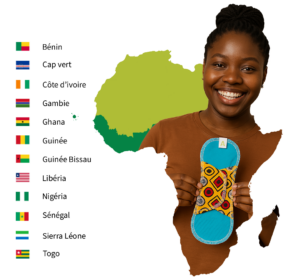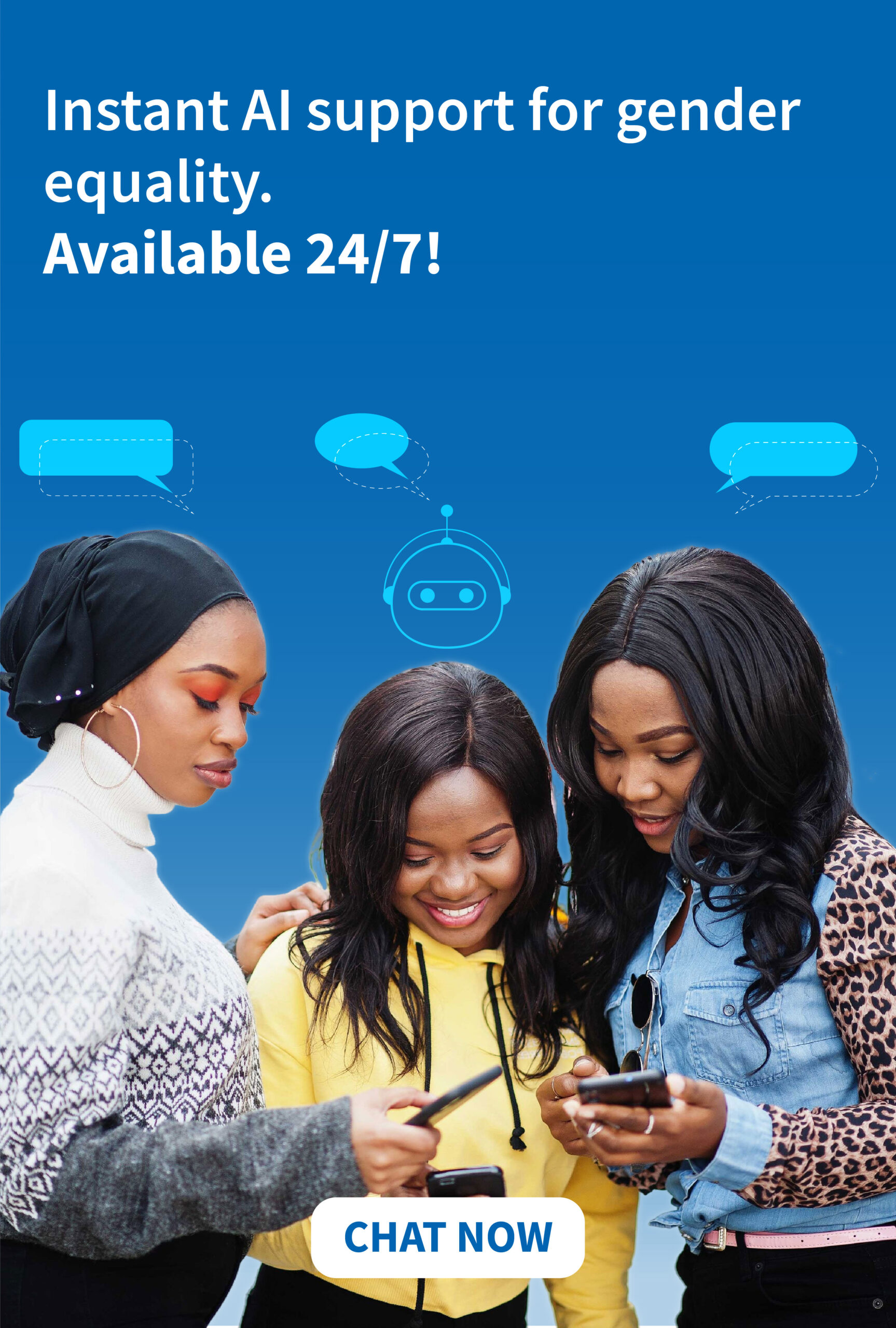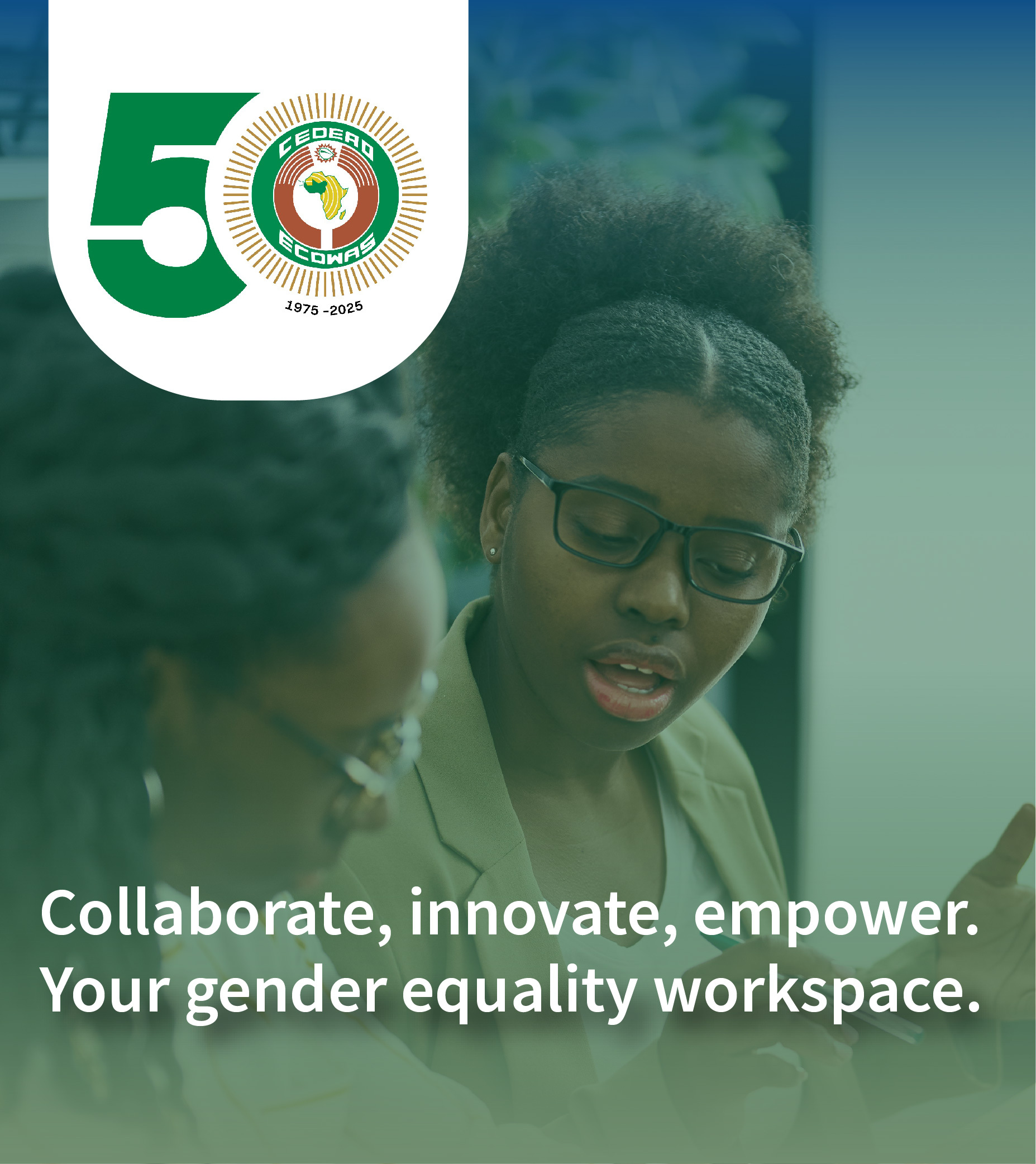Reusable Sanitary Napkin and Diaper Factories Project in ECOWAS

The ECOWAS Commission, through its Gender Development Center (CCDG), has been strengthening its commitment since 2010 to combat obstetric fistula in West Africa. Following medical programs and socio-economic reintegration initiatives, the 2024 project aims to build three factories for reusable sanitary napkins and diapers. These facilities address the needs of adolescent girls (school menstrual hygiene), fistula victims (reproductive health) and the elderly (urinary retention). This initiative is part of ECOWAS’ 2050 vision for gender equality and human development.
CONTEXT AND JUSTIFICATION
With 401.9 million inhabitants (of which 60% are young), ECOWAS faces critical health and educational challenges. Obstetric fistula affects thousands of women, leading to social exclusion and poverty. At the same time, the lack of school sanitary products contributes to girls dropping out, while the elderly lack suitable solutions for urinary leaks. This project fills these gaps by aligning health, education, and socio-economic inclusion, in line with regional objectives for human development and gender parity.
OBJECTIVES
General Objective: Reduce school dropout among girls, improve the reproductive health of fistula victims, and enhance the well-being of the elderly by providing affordable hygiene products.
Specific Objectives:
- Provide sanitary napkins/diapers to the priority targets.
- Enhance the economic independence of women with fistula.
- Support regional educational programs (scholarships, school equipment).
- Ensure the sustainability of actions to fight against fistula and exclusion.
EXPECTED RESULTS
- Improvement of school menstrual hygiene and reduction in girls’ absenteeism.
- Increase in income and socio-economic reintegration of fistula victims.
- Strengthening of resources for excellence scholarships and school equipment.
- Availability of anatomical protections for the elderly.
STRATEGIC AXES
- Menstrual Hygiene in the School Environment: Distribution of sanitary napkins to keep girls in school.
- Reproductive Health and Autonomy of Women with Fistula: Production of affordable diapers and creation of jobs.
- Elderly Care: Provision of protections against urinary leaks.
MANAGEMENT MECHANISM
The project combines economic levers (job creation, income from commercialization) and social levers (reinvestment of profits in education and health). The management of the factories will be entrusted to the States, through contractors or public administrators. A multi-stakeholder Board of Directors (ECOWAS, ministries, partners) will oversee implementation, training, and advocacy.
KEY ACTIVITIES AND TIMELINE
- Q1 2024: Creation of the Board of Directors.
- Q2 2024: Feasibility studies, mapping of existing structures, and financial planning.
- Q3 2024: Construction of the factories and recruitment of managers.
- Q4 2024: Commencement of production and commercialization.
Related News
La CEDEAO lance officiellement l’écosystème digital du ccdg à Saly-Portudal, Sénégal
Le Centre de la CEDEAO pour le Développement du Genre (CCDG), sous le leadership de Prof. Fatou SOW SARR, Commissaire...
ECOWAS promotes the gender equality seal for public institutions (GES-PI) within its Bank for Investment and Development (EBID) in Lomé
The Conference Hall of the ECOWAS Bank for Investment and Development (EBID) hosted, on Wednesday 17 December 2025 in Lomé,...
A new stage in the partnership between the ECOWAS gender development centre (EGDC) and the Folke Bernadotte academy to strengthen the peace and security architecture in west Africa
On the 10th of December 2025 in Abuja, Federal Republic of Nigeria, Prof. Fatou SOW SARR, Commissioner for Human Development and...
ECOWAS trains judicial, health and social actors in Liberia on preventing and responding to GBV and sexual harassment in Monrovia
The Economic Community of West African States (ECOWAS), through its Gender Development Centre (EGDC) organised a national training workshop on...
ECOWAS-AECID coordination meeting: reviewing cooperation and planning for 2026
The Economic Community of West African States (ECOWAS) and the Spanish Agency for International Development Cooperation (AECID) held a virtual...





